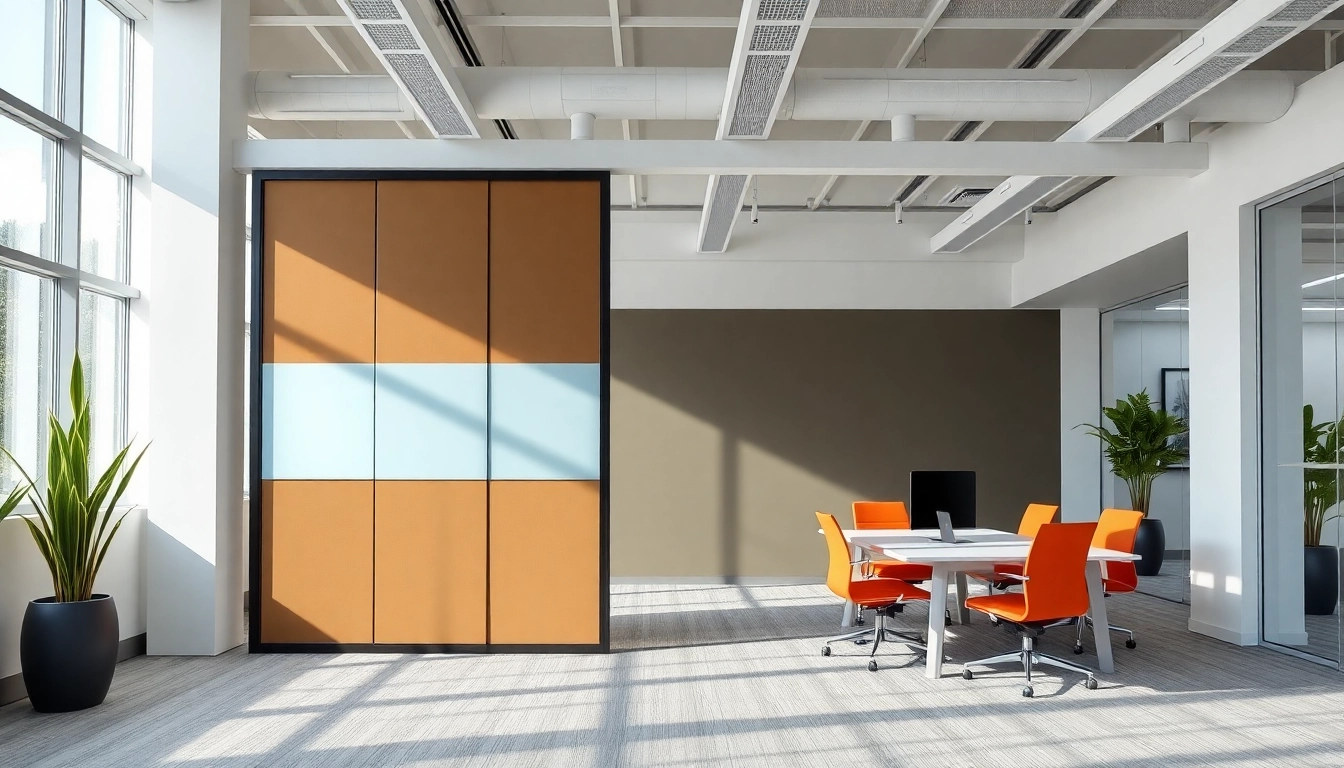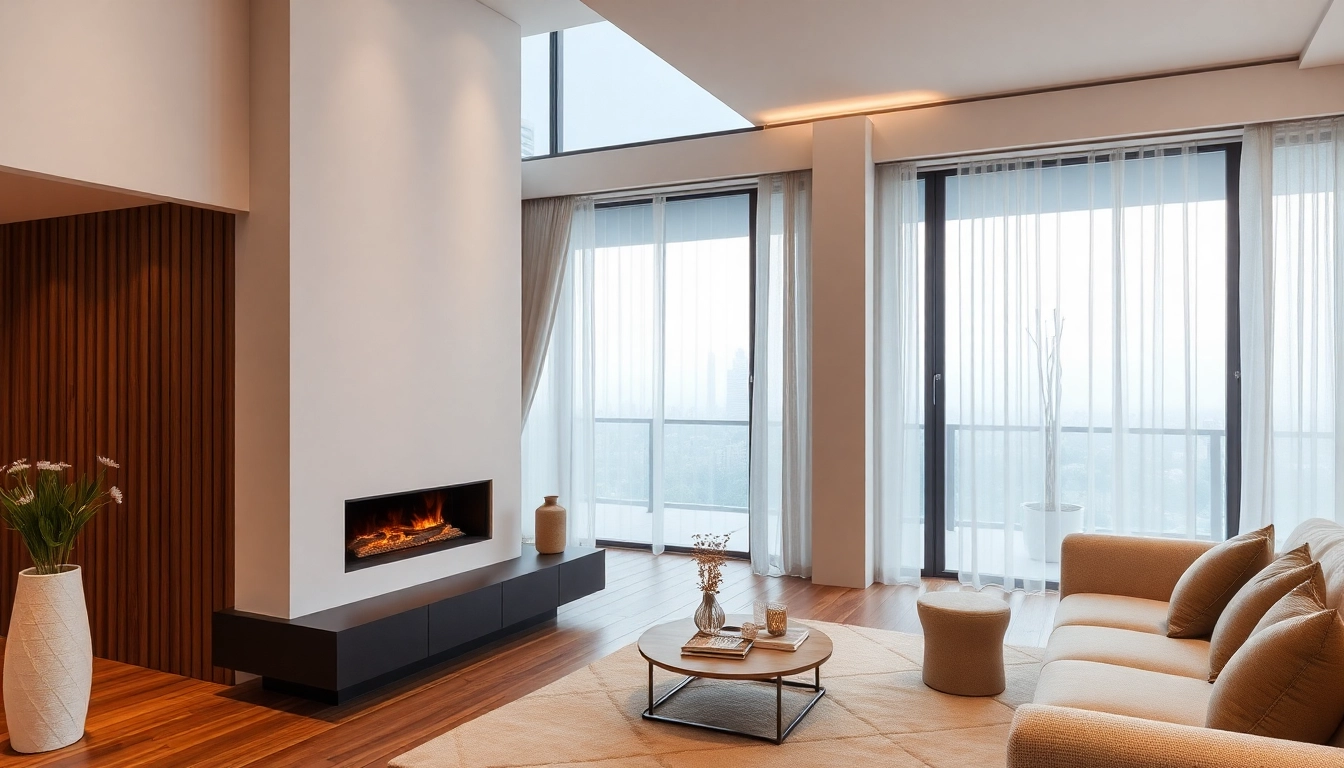Understanding Folding Partition Walls
What is a Folding Partition Wall?
A folding partition wall is a versatile solution designed to transform large spaces into more manageable and functional areas. These walls consist of multiple panels that can be folded and unfolded to alter the layout of a room quickly. They provide flexibility in various environments ranging from offices and conference rooms to schools and event spaces. By enabling quick reconfiguration, folding partition walls help enhance the efficiency and productivity of a space.
Unlike traditional walls, these partitions can be moved or adjusted easily, which makes them an ideal choice for dynamic settings that require frequent layout changes. The walls can be solid or have transparent sections, depending on the required privacy level, light flow, and aesthetic preference. Choosing a Folding Partition Wall from trusted manufacturers ensures a high-quality product that meets specific needs while adding to the room’s overall design.
Benefits of Folding Partition Walls
The adoption of folding partition walls offers numerous advantages that cater to diverse requirements:
- Space Optimization: They allow for flexible use of space, helping to transform a single large room into multiple smaller ones as needed, thus optimizing spatial functionality.
- Cost-Effectiveness: By enabling flexible space usage, businesses can reduce the need for additional real estate, leading to significant savings.
- Quick Installation and Versatility: Folding partition walls can often be installed in a short time frame and can be incorporated into various designs and layouts.
- Design Flexibility: These walls come in a variety of materials, colors, and styles, allowing businesses to align them with their branding and interior design aesthetics.
- Enhanced Acoustics: Quality folding partition walls can provide sound insulation, an essential feature for meeting rooms or collaborative workspaces, minimizing distractions.
Common Applications and Use Cases
Folding partition walls find applications in numerous settings, including:
- Corporate Offices: Used to create temporary meeting rooms or collaborative spaces that can be adjusted based on the size of the team or project.
- Educational Institutions: Schools and universities utilize these walls to divide large auditoriums or gyms into smaller classrooms or activity areas.
- Event Venues: They facilitate the quick transformation of spaces for different events, accommodating varying audience sizes and configurations.
- Healthcare Facilities: Hospitals and clinics benefit from flexible spaces for patient rooms, consultation, or treatment areas that can be easily reconfigured.
- Restaurants and Cafes: These walls can segregate areas for private dining or group events without the need for permanent structural changes.
Types of Folding Partition Walls Available
Operable and Movable Walls Explained
Folding partitions primarily fall into two categories: operable walls and movable walls. Operable walls typically offer a higher level of acoustic separation than movable walls and are more robust, suitable for permanent installations. They are often used in settings where privacy is paramount, such as in corporate offices or conference facilities.
Movable walls, on the other hand, are often lighter and can be more versatile in their application. They are suitable for temporary installations and can be frequently adjusted to meet changing space needs. Both types offer flexibility but cater to different requirements depending on the specific environment and use case.
Material Options for Folding Partition Walls
The materials used for folding partition walls significantly influence their performance, aesthetics, and cost. Common materials include:
- Wood: Often chosen for its aesthetic appeal, wood adds a warm and natural element to spaces. However, it may not provide the same level of sound insulation as other materials.
- Glass: Glass walls create a modern and open environment while allowing natural light to circulate. They are ideal for spaces that require visibility and transparency, such as offices or conference rooms.
- Fabric: Fabric-covered partitions can provide versatility in design while also delivering sound absorption properties, making them ideal for settings where noise control is crucial.
- Aluminum: Aluminum frames are lightweight, durable, and can be combined with various infill options like glass or fabric.
Cost Considerations and Budgeting
When considering the installation of folding partition walls, understanding the cost implications is essential. Several factors will influence the overall cost:
- Material Choice: The selected material can dramatically affect pricing. For instance, glass walls tend to be more expensive than fabric or wood options.
- Size and Complexity: A larger area requiring partitioning or complex designs with multiple configurations may result in a higher cost.
- Installation Fees: Professional installation may be necessary, especially for heavier walls, and this service should be factored into the overall budget.
- Maintenance: Some materials require more upkeep than others, which should also be considered when budgeting for long-term use.
Installation and Maintenance Guidelines
Steps for Installing Folding Partition Walls
The installation process for folding partition walls can vary depending on the type and manufacturer, but general steps include:
- Site Assessment: Evaluate the area where the partition wall will be installed to ensure the space meets the necessary requirements.
- Preparation: Remove any existing structures or obstructions, and ensure that all necessary tools and materials are on hand.
- Frame Installation: Start by installing the frame based on manufacturer instructions, ensuring all components are anchored securely.
- Panel Installation: Begin attaching the panels to the frame, following manufacturer guidelines to ensure proper alignment and function.
- Testing: Once installed, test the partition system to verify that it opens, closes, and locks correctly without hindrance.
Regular Maintenance Tips
To ensure the long-term functionality and appearance of folding partition walls, regular maintenance is essential. Here are a few tips:
- Routine Inspections: Regularly check for signs of wear or damage, ensuring that all components are functioning as intended.
- Cleaning: Keep partitions clean by dusting and using appropriate cleaning solutions. Avoid harsh chemicals that could damage surfaces.
- Lubrication: Periodically lubricate hinges and tracks to ensure smooth operation.
- Professional Servicing: Schedule annual maintenance checks with a professional to address any potential issues before they escalate.
When to Seek Professional Help
While many installations can be completed by handy individuals, certain situations call for professional expertise:
- Complex installations involving specialized equipment or numerous panels.
- Heavy or oversized partition walls that require additional support.
- When extensive repairs are needed that go beyond basic maintenance.
Choosing the Right Folding Partition Wall for Your Space
Assessing Your Space Requirements
When selecting the right folding partition wall, assessing specific space requirements is crucial. Consider the following factors:
- Dimensions: Measure the area to understand how much space you aim to separate or create.
- Usage Frequency: Determine how often the wall will need to be adjusted—some environments may require frequent changes, while others may be more static.
- Functionality Needs: Consider the need for acoustic privacy, visual separation, or both.
Factors to Consider Before Purchase
Before making a purchase, evaluate these critical factors:
- Budget: Ensure the chosen solution fits within your budget while still meeting your needs.
- Quality and Durability: Research materials and brands to select a solution that will stand the test of time.
- Warranty and Support: Consider the warranty offered and the support provided by the manufacturer or retailer.
Comparing Leading Brands on the Market
As the market for folding partition walls grows, several brands stand out:
- Hufcor: Known for offering high-quality and durable folding partitions, Hufcor is a market leader with a range of customizable options.
- Modernfold: This brand provides versatile operable walls known for their acoustic performance and aesthetic design.
- Raydoor: They focus on interior accordion and sliding walls, emphasizing modern aesthetics and sustainability.
Comparing reviews, features, and pricing across brands will empower you to make the most informed decision.
Innovative Trends in Folding Partition Wall Design
Integration with Smart Technology
As technology continues to evolve, folding partition walls are increasingly being integrated with smart technology. Sensors and automation systems allow users to control the positioning of partitions with simple commands, facilitating faster changes in space configuration. This integration enhances user convenience and trends toward more modern, adaptable environments.
Sustainability in Partition Wall Manufacturing
Sustainability is becoming an essential consideration in the partition wall industry. Manufacturers are increasingly focusing on eco-friendly materials and processes, striving to reduce their carbon footprints. Choosing sustainable partition walls can also contribute to LEED certification for green buildings, appealing to environmentally conscious consumers.
Future Trends in Flexible Space Solutions
The future of folding partition walls is promising, with trends leaning towards even greater flexibility and customization. Expect to see advancements in materials that optimize acoustics while maintaining aesthetic appeal. Moreover, the rise of remote work is driving demand for adaptable home and office environments, creating substantial opportunities for innovative solutions in space management.


